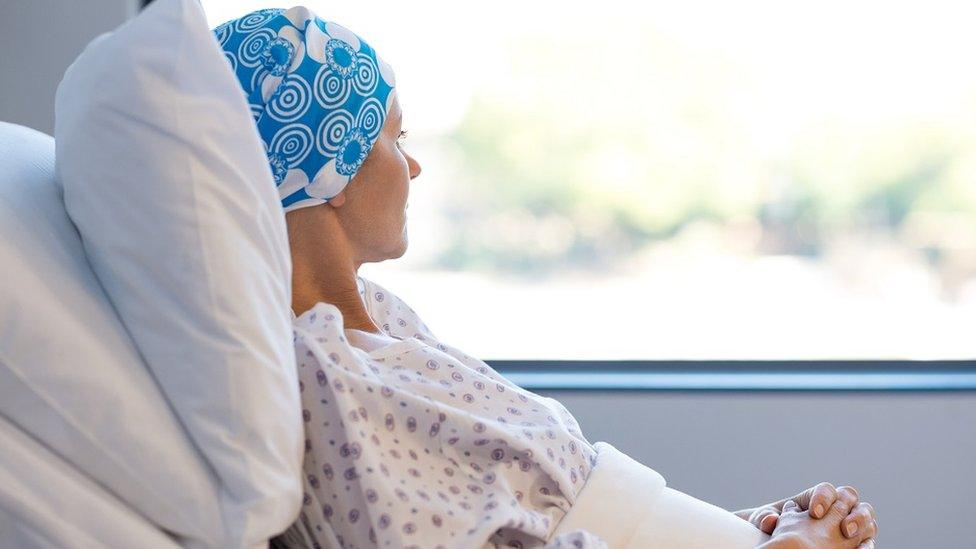Glasgow scientists win funding for new radiotherapy techniques
- Published
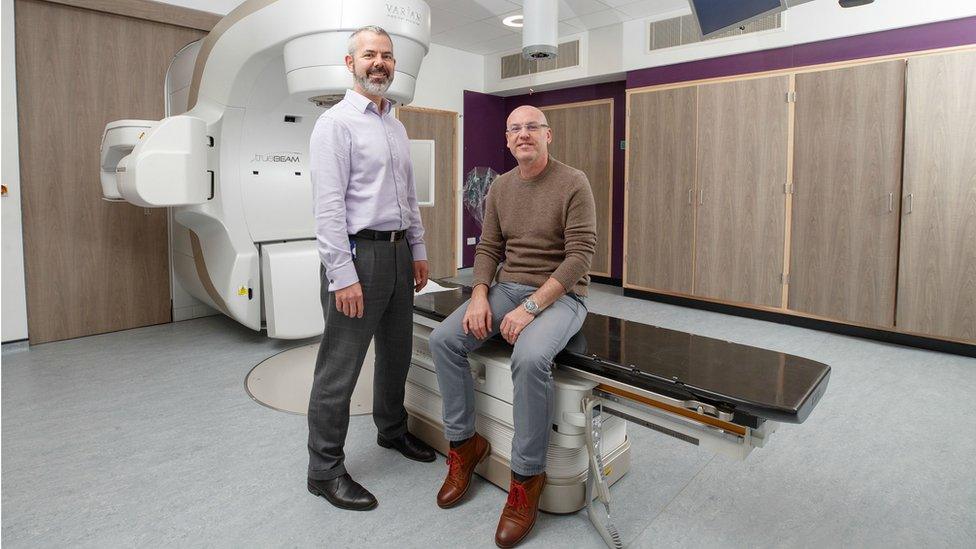
Prof Anthony Chalmers, pictured with patient Jak Deschner, hopes the money will help to develop new treatment techniques
Cancer researchers in Glasgow have been awarded funds to develop new therapies and techniques for radiotherapy.
Scientists from the Cancer Research UK Glasgow Centre will receive £3.5m over the next five years.
The funds are part of Cancer Research UK's largest ever investment in radiotherapy research, with centres across the UK receiving money.
About 130,000 patients are given radiotherapy treatment for cancer in the UK each year.
It works by targeting cancer cells with radiation such as X-rays. This can kill cells by damaging their DNA.
Personalised approach
While half of all cancer patients are treated with radiotherapy, it receives only 5% of the cancer research budget, according to lead researcher Prof Anthony Chalmers.
He said: "The funding will transform our ability to develop new radiotherapy technologies that will help more people beat cancer, while causing fewer side effects so that patients will have a better quality of life after treatment."
The money will support research into treatments for hard-to-treat cancers and those with poor prognosis, such as lung and brain, as well as develop more personalised approaches to radiotherapy, taking into account the patient and the particular cancer they have.
Chief executive of Cancer Research UK Michelle Mitchell said: "Radiotherapy is a cornerstone of cancer medicine, with around three in 10 patients receiving it as part of their treatment. The launch of our network marks a new era of radiotherapy research in the UK."
'You think you've climbed a mountain when, in actual fact, you've just plateaued'
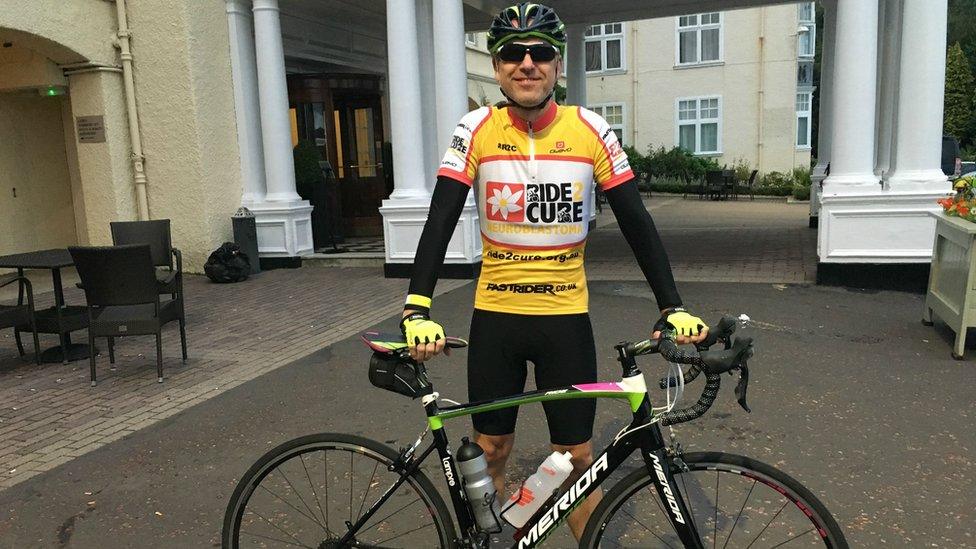
Jak Deschner was diagnosed with a brain tumour after a seizure caused him to come off his bike
Jak Deschner, from Stepps near Glasgow, knows all too well the importance of this research.
A keen cyclist, in June the 56-year-old was returning home when he had a seizure, causing him to fall off his bike. A CT scan revealed a brain tumour and Mr Deschner underwent surgery to remove as much of it as possible.
A sample was later diagnosed as grade 4 glioblastoma, the most common type of brain tumour.
Mr Deschner said: "There was a part of me that was focused on the brain surgery as the most important thing and, once it was done, there was almost a sigh of relief. It was a real hammer blow to hear I had cancer. You think you've climbed a mountain when, in actual fact, you've just plateaued."
He was given six weeks of radiotherapy and chemotherapy, and took part in a trial led by Prof Chalmers which looked into radiotherapy-drug combinations.
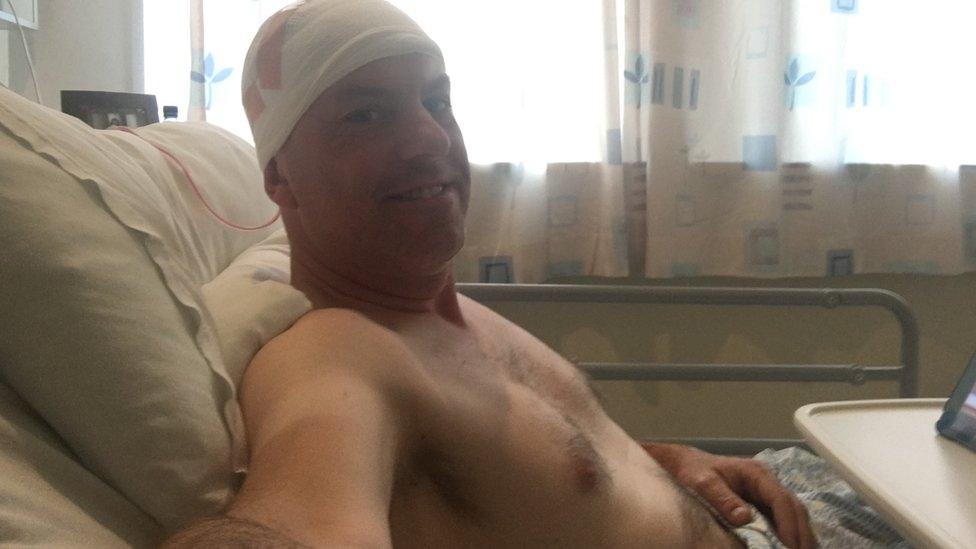
Mr Deschner hopes his incurable cancer can be managed
He said: "When I was offered a place on the clinical trial, I said bring it on. Even if it doesn't help me, it will help the researchers find out important information".
While Mr Deschner has been told his cancer won't be cured, it is hoped it can be managed. He will continue with chemotherapy treatment.
He wants to make the most of life and get back on his bike, including cycling the length of the UK in September next year to raise money for Cancer Research UK.
He said: "I'm proud to hear that Glasgow is set to benefit from this big investment in radiotherapy research, and I'm proud of the part I've played in the ground-breaking research taking place just down the road from me."
- Published30 September 2019
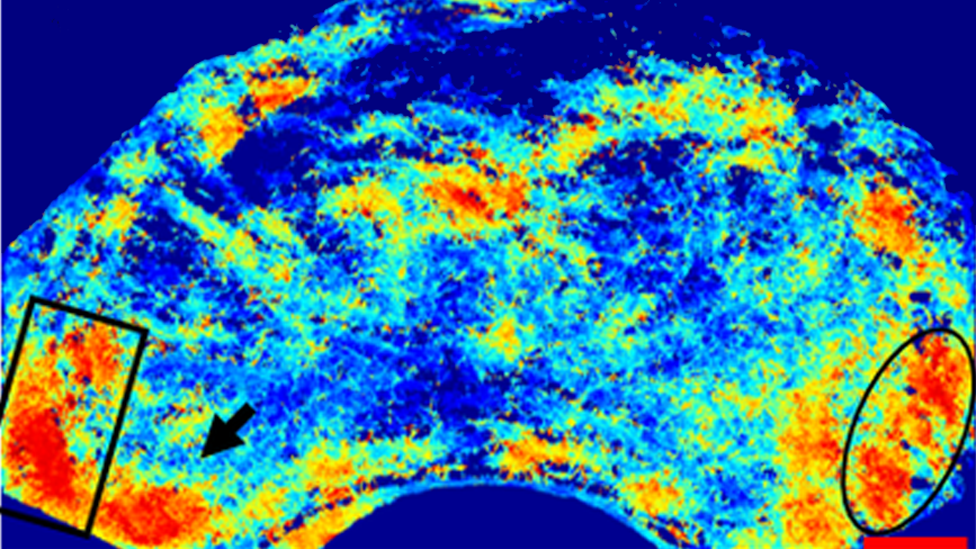
- Published25 June 2019
